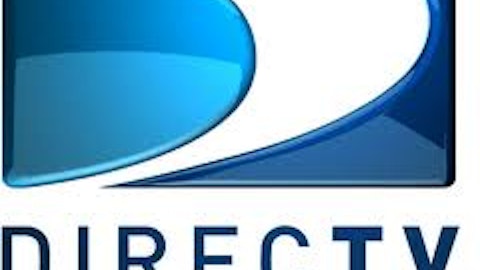The government alleges that Apple’s motivation to raise e-book prices across the market came from an agreement that gave Apple a 30% commission of e-book sales at the agency rate, in line with Amazon’s commission rate. The Justice Department has also called iTunes head Eddy Cue the “chief ringleader of the conspiracy”, and has revealed internal documents that indicate that the late Steve Jobs was also aware of Cue’s plans to raise e-book prices to hamper Amazon’s growth.
The sound and the fury… signifying nothing?
Despite all this sound and fury, Apple shareholders shouldn’t be too concerned with the outcome of this trial for two reasons.
First, e-books are merely an ancillary source of revenue for Apple, intended to complement its music business. If Apple can grow this business to Amazon-like proportions, then it will be a boon to shareholders, but if it collapses then it certainly won’t be a bane. In digital revenue, Apple still has the sales of its music, video and apps to fall back on, and although it might be forced to return to the wholesale model, it will still control a sizable chunk of the e-book market. Second, a fine wouldn’t be more than a slap on the wrist for a company that has $39.1 billion in cash and equivalents. Lastly, neither Apple nor Amazon will be really shaken up by whatever the government decides.
Instead, we should focus on the biggest loser in all of this – Barnes & Noble, Inc. (NYSE:BKS).
Tossed in the bargain bin
Although Barnes & Noble, Inc. (NYSE:BKS) is currently the second largest e-book retailer in the United States, it has a crumbling brick-and-mortar business, which reported a 7.3% decline in same-store sales last quarter. It also reported a net loss of $6.1 million, a 112% decline from the profit of $52 million it reported in the prior year quarter.
Its Nook division reported a steep 26% year-on-year decline in revenue, although digital content sales rose slightly by 6.8%. That means that although sales of its hardware have been falling through the floor, existing Nook owners are still purchasing e-books and apps. However, operating income at the Nook segment slid 23% to $316 million.
For a while, it seemed as if Microsoft Corporation (NASDAQ:MSFT), which currently owns 17% of the Nook Media business, would swoop in as Barnes & Noble’s savior. Unfortunately, Microsoft Corporation (NASDAQ:MSFT)’s assistance of the Nook has been tepid at best, by offering a Nook app for its Windows 8 and Windows Phone devices. However, it appears that Barnes & Noble has very little faith in these apps, and has recently dropped support for the Mac and PC (except for Windows 8) versions of its Nook standalone e-reader software. Nook users are now directed to use the web based version instead. In contrast, Apple announced that it will bring iBooks to the Mac through a dedicated OS X 10.9 app.
Therefore, it’s easy to see where Barnes & Noble is headed – straight to the bargain bin, then possibly to the recycling bin, unless it finds a way to straighten out both its brick-and-mortar and e-reader businesses.





